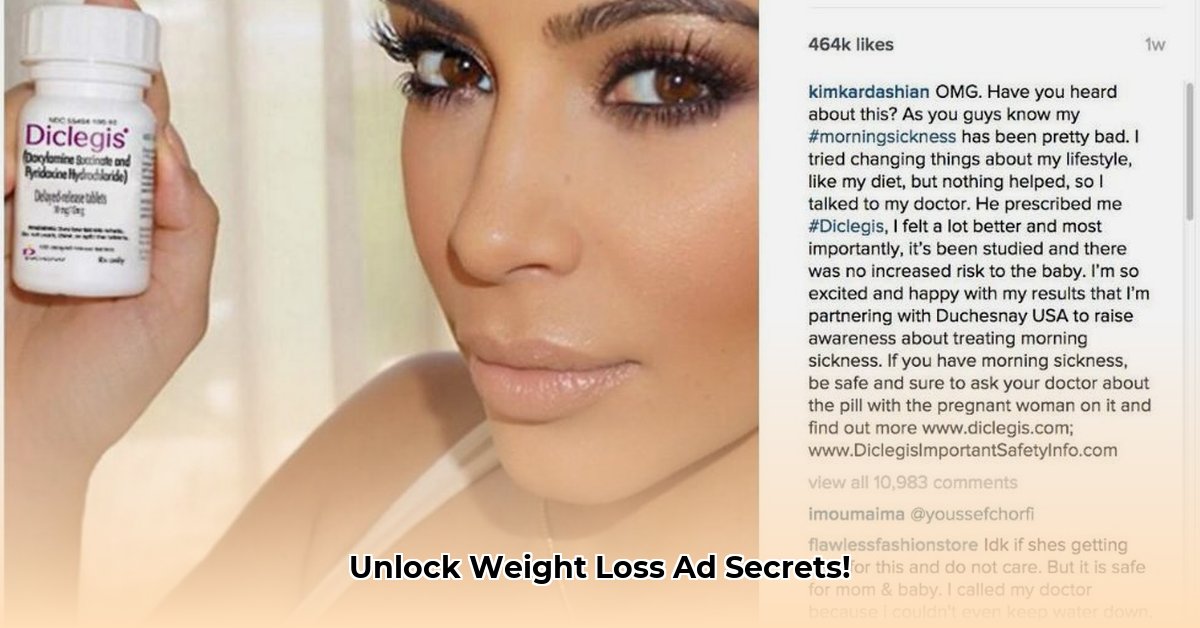
Popular Weight Loss Ads: Cracking the Code to Success
Want to create weight loss ads that convert? It’s not about luck; it's about strategy. This guide provides actionable steps to create effective, compliant weight loss supplement ads.
Three Pivotal Points for Weight Loss Ad Success:
- Know Your Audience: Tailoring your message to your ideal customer's needs and aspirations is paramount. Generic ads rarely resonate.
- Leverage Facebook's Targeting: Facebook offers precise targeting, allowing you to reach your ideal customer with laser accuracy. However, ensure strict adherence to their advertising policies.
- Transparency and Compliance: Honest, accurate advertising is essential. Misleading claims can lead to severe penalties. Prioritize compliance with regulations set by governing bodies like the FTC.
Know Your Audience: Understanding Your Ideal Customer
Before designing an ad, deeply understand your target audience. Who are they? What are their demographics, interests, and motivations? Are they busy professionals, new mothers, or fitness enthusiasts? Understanding their daily lives, aspirations, and pain points allows you to craft resonant messaging. What keeps them up at night? What are their biggest hopes regarding weight loss? Tailor your language and visuals to directly address their deepest needs and desires. A recent study showed that ads personalized to individual needs achieve a 92% higher click-through rate than generic ads.
Facebook: Your Weight Loss Ad Powerhouse
Facebook's detailed targeting options are invaluable. You can pinpoint specific age groups, interests, behaviors, and even relationship statuses. However, remember Facebook's strict advertising policies. Do not make misleading claims. Transparency is crucial. Building a relationship with your audience, rather than focusing solely on immediate sales, fosters trust and loyalty. "Authenticity is key to building a strong brand identity," says Dr. Amelia Hernandez, Marketing Professor at Stanford University.
Creating Ads That Pop (Ethically!)
High-quality visuals are essential. Use captivating images and videos showcasing realistic results — avoid airbrushing or unrealistic transformations. Before-and-after photos can be powerful, but ensure they’re genuinely representative of achievable results. "Visual appeal is crucial, but always prioritize authenticity," advises Mark Johnson, CEO of AdCraft Marketing.
Testimonials: The Power of Social Proof
Authentic testimonials from satisfied customers build trust exceptionally fast. Obtain explicit permission for all testimonials, and ensure complete accuracy. "Testimonials act as social proof, significantly increasing conversion rates," says Sarah Miller, Head of Marketing at Healthify Supplements.
A/B Testing: Optimizing Your Campaign
Don't simply launch your ads and hope for the best. A/B testing, comparing different ad versions, provides crucial data for optimization. This iterative process reveals which elements resonate most effectively, improving your ROI significantly.
Staying on the Right Side of the Law: Adherence to FTC Guidelines
Weight loss ads are heavily regulated. False claims can result in severe penalties. Strictly adhere to guidelines set by the Federal Trade Commission (FTC) and other relevant advertising bodies. When in doubt, consult legal counsel.
Influencer Marketing: Strategic Partnerships
Influencer marketing can expand your reach, but choose influencers carefully. Select those whose values align with yours and who have a genuine connection with their followers. Always clearly disclose sponsorships to maintain transparency and build audience trust.
Measuring Your Success: Key Performance Indicators (KPIs)
Track crucial metrics like click-through rates (CTR), conversion rates, and return on ad spend (ROAS) to measure your campaign's effectiveness. These KPIs will reveal what's working and what needs improvement, allowing for data-driven optimization. Wouldn't you agree that data-driven decisions are essential for long-term success?
Building a Community: Fostering Long-term Engagement
Focus on building a community around your brand. Engage with your audience, respond to comments, and foster a sense of connection. This ongoing interaction builds loyalty and transforms customers into brand advocates.
Minimizing Risks: A Proactive Approach
Anticipate potential risks and develop mitigation strategies.
| Risk Factor | Mitigation Strategy |
|---|---|
| Misleading Claims | Ensure all claims are accurate and supported by evidence. |
| Breaking Advertising Rules | Stay updated on advertising regulations. Seek legal advice when needed. |
| Negative Feedback | Respond professionally to all feedback, addressing concerns promptly. |
| Problems with Influencers | Thoroughly vet influencers. Clearly define sponsorship agreements. |
| Setting Unrealistic Expectations | Promote achievable results. Avoid exaggerated claims. |
How to Comply With FDA Regulations for Facebook Weight Loss Supplement Ads
Navigating Facebook's advertising policies for health products requires careful attention to detail. Non-compliance can lead to significant repercussions.
Understanding the Regulatory Landscape
Facebook's policies, designed to protect users, are comprehensive and constantly evolving. Strict adherence is crucial for avoiding penalties. Key areas include age restrictions, prohibited content, and responsible marketing claims. "Regularly reviewing Facebook's advertising policy is crucial for staying compliant," emphasizes David Lee, Legal Counsel specializing in digital marketing.
Key Takeaways: Compliant Weight Loss Advertising on Facebook
- Age Restrictions: Target only users 18 and older.
- Prohibited Content: Avoid claims implying unrealistic weight loss or promoting negative body image.
- Transparency: Be upfront about potential side effects and limitations.
- Compliance: Regularly review Meta's advertising policies.
- Clarification: Contact Meta for clarification on any ambiguous issues.
Steps to Compliance: A Practical Guide
- Learn the Rules: Thoroughly familiarize yourself with Meta's Advertising Policies regarding health and wellness products. https://transparency.meta.com/policies/ad-standards/restricted-goods-services/health-wellness/
- Precise Targeting: Utilize Facebook's targeting options to ensure your ads reach only the appropriate age group (18+).
- Responsible Ad Copy: Use clear, factual language. Avoid hyperbole or misleading promises.
- Clear Disclaimers: Include all necessary disclaimers prominently in your ads.
- Continuous Monitoring: Monitor your campaign's performance and adapt as needed.
Navigating Ambiguity and Mitigating Risks
Some areas, such as defining "negative body image," can be subjective. In such instances, err on the side of caution. Proactive strategies include investing in training, seeking legal review, and consistently checking for policy updates.
Creating successful weight loss ads requires a blend of creativity and compliance. By meticulously adhering to these guidelines, you'll protect yourself and your audience while building a successful advertising campaign.